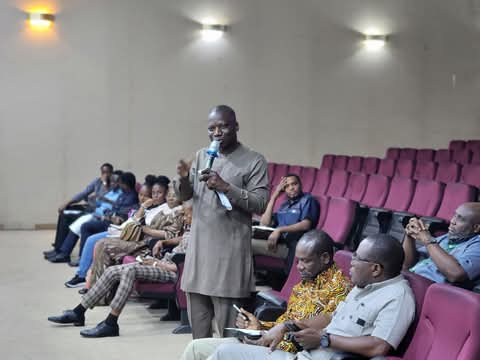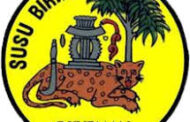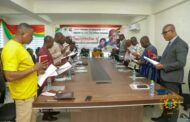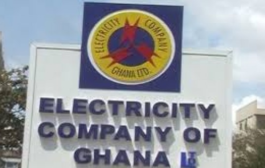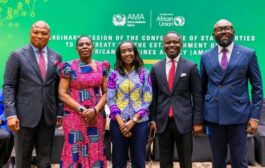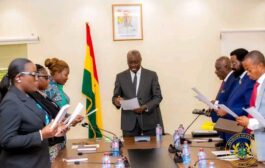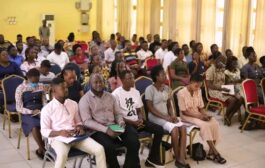The Chairman of the Parliamentary Select Committee on Sanitation and Water Resources, Mr John Kwabena Bless Oti, has urged district assemblies to consider utilising their Internally Generated Funds (IGF) to support sanitation services during delays in the release of their Common Fund allocations.
Mr Oti said this during a working visit by the Committee to various municipalities in the Greater Accra Region. The visit was to enable members of the Committee to assess the state of sanitation and water management and identify key areas for intervention.
At the office of the Accra Metropolitan Assembly (AMA), the Committee was briefed on the increasing volume of waste generated in the capital and the ongoing efforts to address the situation.
Members of the Committee and officials of the AMA underscored the importance of strong collaboration between the assembly and the Committee in tackling the city’s growing sanitation issues.
The Director of Waste Management at the AMA, Mr Solomon Noi-Adzeman Nuetey, called for a restructuring of the Youth Employment Agency (YEA) programme to place control in the hands of local assemblies. According to him, this shift would allow for more efficient and targeted sanitation interventions.
“We must revisit the structure of the YEA programme and grant assemblies greater control. That way, we can manage waste more effectively and reduce the pressure of filth in the city,” he said.
Mr Nuetey reaffirmed the AMA’s dedication to improving sanitation standards and emphasised the need for stakeholder cooperation. He also proposed the establishment of an intermediate treatment facility to help close the gap in disease prevention efforts.
The Committee later visited the Korle Klottey Municipal Assembly, where similar concerns were raised. The Municipal Coordinating Director, Mr Emmanuel Baisie, expressed frustration over the lack of input from assemblies in the signing of waste management contracts with Zoomlion and the Jospong Group.
“These contracts were signed without the involvement of our technical teams, making it difficult for us to effectively supervise their work,” he explained.
“Despite this, deductions are made directly from our accounts to pay them. With the right support, we could use our own IGF to engage service providers or even manage waste internally.” He added.
Mr Baisie also highlighted proactive steps taken by the Assembly, including the formation of late-afternoon sanitation teams to help maintain public spaces and green areas.
Mr John Bless Oti, in response to the concerns, described the situation in Accra as “unfortunate,” particularly the alarming volume of rubbish observed throughout the capital. “The Assemblies have indicated they can fund waste services using their IGF, so they should be given the authority to engage service providers directly. We will raise this issue in Parliament,” he stated.
He added that it is unacceptable in the 21st Century to have waste piling up throughout the city while key stakeholders are sidelined during contract signing.
In 2017, Parliament allocated over GH₵255 million to the Ministry of Sanitation and Water Resources to support its operations. This budget included funding for capital projects and donor support intended to strengthen sanitation systems and improve public health.
The Committee’s regional tour is expected to cover 19 metropolitan, municipal, and district assemblies (MMDAs) across the Greater Accra Region.
The visits will help shape strategic recommendations aimed at improving sanitation and water management in the region.
Source:Mybrytfmonline.com/Kwabena Nyarko Abronoma



